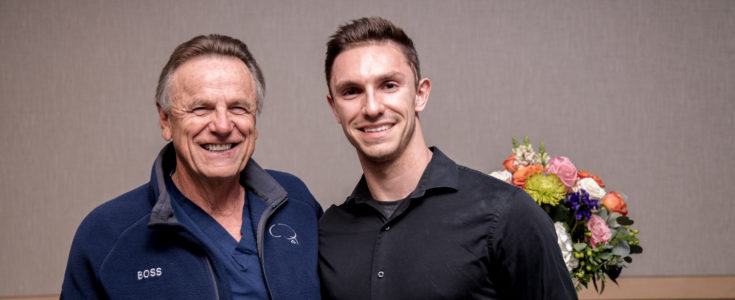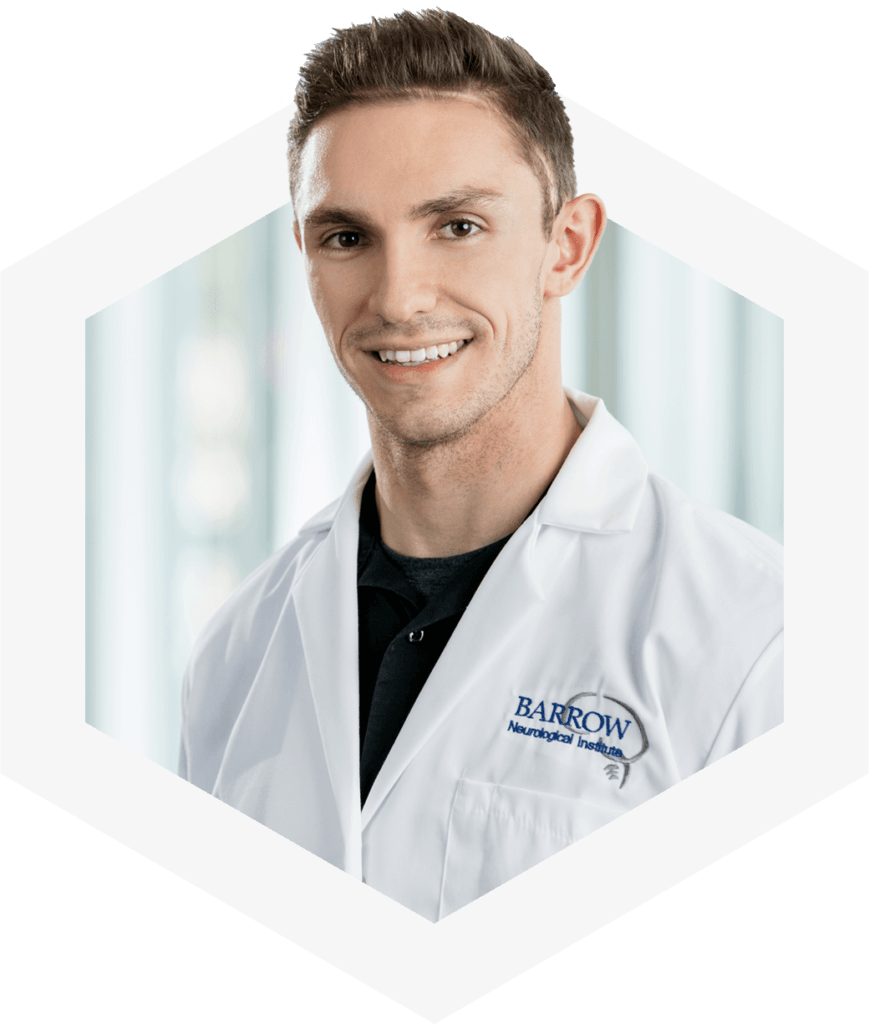
Ivy Blog
Staff Spotlight: Matthew Elijah Dufault
- April 23, 2020
- Ivy Center
- Posted in #IvyTeam


Job Title: Research Technician
Hometown: Minnetrista, Minnesota
What made you want to work for the Ivy Brain Tumor Center?
When I heard the Ivy Brain Tumor Center was hiring my heart skipped a beat…probably several beats. I had been working at Mayo Clinic researching glioblastoma for over a year but my internship was ending. It was almost four years ago that Dr. Spetzler resected an arteriovenous malformation from my left frontal lobe right here at Barrow, and just a few months ago I was in the perfect place to apply and give back to Barrow and the patients through research.
What motivated you to get into the medical field, specifically research?
My current goal is to be accepted to medical school and become a neurosurgeon. I aim to incorporate research to provide better techniques and therapies for patients with neurological diseases. My experiences at Mayo and the Ivy Brain Tumor Center will always be foundational for this.
This became my goal through my personal AVM battle that lasted many years. Starting in 8th grade I had intense AVM-induced blackout episodes where I would lose my personality and become confused and aggressive. My first craniotomy to remove the AVM from my left frontal lobe was not successful and symptoms returned shortly after. I came to Barrow after freshman year at ASU where I met Dr. Spetzler. He assured me I was in the best hands and explained things so well that when it came time for my second craniotomy, I was oddly more comfortable than nervous. My Barrow experience as a patient was personal and healing, and that is what I want to give patients in my medical career.
What is it like to know that you’re playing an integral role in identifying new therapies that will contribute to a cure for brain cancer?
That’s the most exciting part! We are able to identify effective therapies quickly here, and over time these discoveries are going to result in patients living better and longer lives with brain cancer. The impact this will have on patients and their families is everything.
What keeps you motivated when dealing with such a complex disease?
I surely appreciate the science, but I’m most strongly motivated to battle this disease for the lives of the patients. Every new mechanism we unveil and every new treatment we optimize teaches us more about cancer and the brain, and brings real hope to patients and families that need it.
